The pancreas is two glands in your body, but where is the pancreas located? The pancreas is found in your abdomen (belly) behind your stomach, where it is connected to the top part of your small intestines. The pancreas forms an important part of the endocrine (hormonal) system in the body, because it makes an
The pancreas is two glands in your body, but where is the pancreas located? The pancreas is found in your abdomen (belly) behind your stomach, where it is connected to the top part of your small intestines. The pancreas forms an important part of the endocrine (hormonal) system in the body, because it makes an important hormone, called insulin. The pancreas is also responsible for forming enzymes that are molecules that help your body digest food.
There are four very important hormones that are released by the pancreas that helps with the breaking down and building up processes of carbohydrates in the body.
The parts in the pancreas that have the hormone producing cells are called the Islets of Langerhans, named after a German pathological anatomist called Paul Langerhans. Four different types of cells in the Islets of Langerhans have been identified and each different cell type produces a different hormone with a specific action.
1. A cells produce glucagon –helps to move glucose, fatty acids and amino acids from stores (cells and tissue in the body) into the blood.
2. B cells produce insulin –Increases the storage of glucose, fatty acids and amino acids in cells and tissue
3. D cells produce somatostatin – help to regulate the release of the other pancreatic hormones in the pancreas. In the brain and spinal cord it may act as a neurohormone (brain hormone) and neurotransmitter (brain chemicals that send information between cells in the brain and other cells in your body).
4. F or D1 cells produce pancreatic polypeptide – A lot of information is still needed on pancreatic polypeptides, although it is known that this hormone may influence gastrointestinal function and help to balance conditions within the Islets.
Pancreatic enzymes:
The pancreas makes pancreatic enzymes that help your body to break down carbohydrates (starch), fats and proteins, so that your body can absorb and use it.
Three very important pancreatic enzymes are:
1. Lipase: Breaks down fat.
2. Protease: Break down proteins and protects the body against parasites.
3. Amylase: Breaks down carbohydrates so that it can be more easily absorbed by your body.
Did you know that your pancreas can become inflamed? Inflammation of the pancreas is called pancreatitis. The most common causes of developing inflamed pancreas are alcohol and the presence of gallstones in your bile ducts. Some other causes of pancreatitis are:
- Certain medication such as corticosteroids
- Damage caused by surgery
- Cancer of the pancreas
- Viral infections
Pancreatic cancer:
Pancreatic cancer is very dangerous. When you are diagnosed with pancreatic cancer in the early stages, you might have a better chance of surviving the cancer after treatment. Look out for the following signs of pancreatic cancer.
- Pain in the pancreas location or back (dull pain)
- Jaundice (Yellowing of the skin and white parts of the eyes)
- Weight loss (Some people diagnosed with pancreatic cancer may suddenly lose a lot of weight for no reason)
- Diabetes (some people who have been recently diagnosed with diabetes should be on the lookout for any pancreatic cancer symptoms, since a higher percentage of people who have been newly diagnosed with diabetes may develop pancreatic cancer, when compared to non-diabetic people).
- Digestion issues
- Bowel changes
- Fever
Pancreatic cancer causes:
Pancreatic cancer can be caused by damage to your DNA (molecules that contain your genetic material, for example information about what colour hair or eyes you have). DNA may be damaged because a fault or mutation might have been inherited from your mother or father. It might be damaged because of our own behaviour such as smoking or because of environmental contaminants.
DNA can also be damaged by chance. When every new cell is made in your body, your DNA is replicated and with this replication process there is a chance that some DNA damage may occur. Age plays a role in the occurrence of pancreatic cancer, most cases of pancreatic cancer occurs between the ages of 60 and 80. Obesity increases the risk of pancreatic cancer. Different diets may have a higher risk for pancreatic cancer. Diets high in meat and fried food increase the risk for developing pancreatic cancer whilst diets high in fruit and vegetables reduce the risk.
It is very important that your pancreas function correctly. Make sure that you follow a healthy diet and lifestyle, and make sure that you exercise regularly to help keep your weight in check. Which dietary or lifestyle changes are you going to make to help your pancreas function on its best?





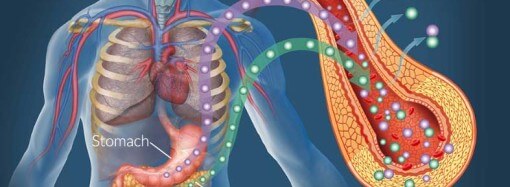


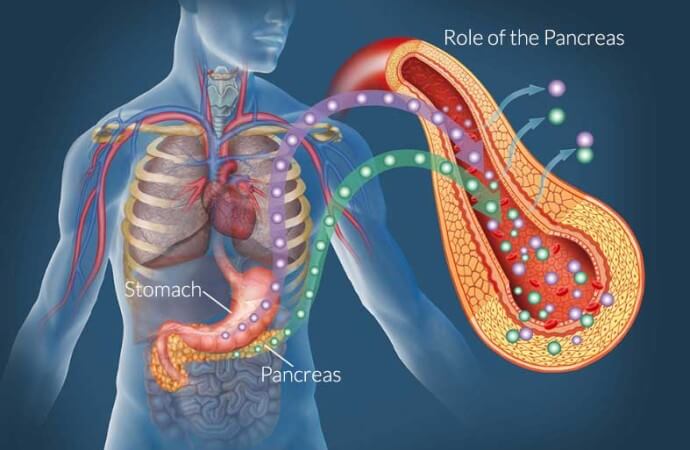
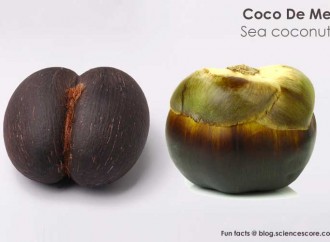

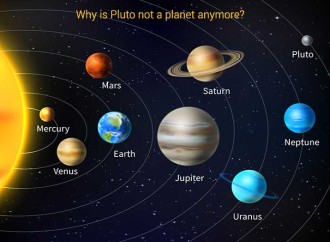
















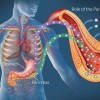



















Leave a Reply